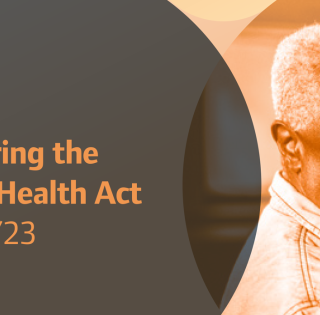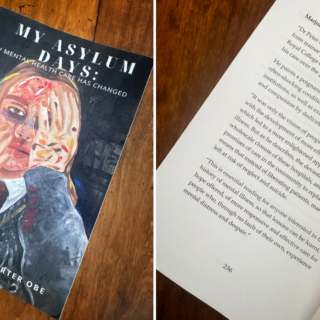Stress Awareness Day: Why it matters and ways to cope
Stress is something we all experience, a reaction to feeling threatened or under pressure. It is an entirely normal feeling – a response to common challenges in daily life – and affects everyone differently. But what causes stress can vary from person to person.
However, repetitive and overwhelming stress can affect our mood, body and relationships, especially if it feels out of our control. It can seriously affect both mental and physical health, as well as our behaviour.
Symptoms and causes
The physical effects of stress include headaches, raised blood pressure, difficulty sleeping and muscle tension, as well as digestive disorders and a reduced immune system.

Psychologically, when someone feels stressed, they can have a host of emotional symptoms, including low mood, lack of self-esteem, increased anxiety and panic attacks.
This Stress Awareness Day, it is impossible to avoid uncertainty over the future with financial troubles causing chronic stress and reducing choices in many areas of life.
Experiencing stress does not mean you have a mental health problem or that you need specialist services. But if you are struggling mentally, you may be less able to deal with it than other people. There are ways to help control and dispel stress, which can stop it becoming debilitating.
Coping mechanisms
Eating healthily, moving your body regularly and finding a work-life balance which works for you can help. Try taking regular breaks and staying in touch with friends to build resilience, and take part in activities that bring joy.
Sometimes ways of coping such as smoking, drinking alcohol, hurting yourself or using food to manage distressing feelings, might appear easier and reduce stress in the short term. But they are unhelpful and will do more harm than good in the future both to you and your family.
The risk of saying or doing nothing, if you feel your mental health is deteriorating, is potentially much greater than speaking out or seeking help and support. Talking to someone can be one of the most effective ways to help manage stress.
Speaking with a trusted friend, partner, family member and GP can help you to share the burden. By communicating, not only can physical and emotional symptoms be reduced, but an underlying issue could be resolved. These moments can be instrumental in identifying early signs of mental health conditions and can offer early intervention if a person is finding it difficult to cope.
National Stress Awareness Day is a timely reminder that although stress is unavoidable, we can manage it, treatment is available, and people can and do recover.
If stress is affecting your daily life or causing you distress, speak to your GP. You can also ring SANEline for emotional support on 0300 304 7000 from 4pm to 10pm every day of the year.
Further information
For more practical tips and information on combatting stress, you can visit NHS Every Mind Matters. The aim of Every Mind Matters is to give people the skills and confidence to support our own and each other’s mental health and suggest what we should do if we have mental health problems.





